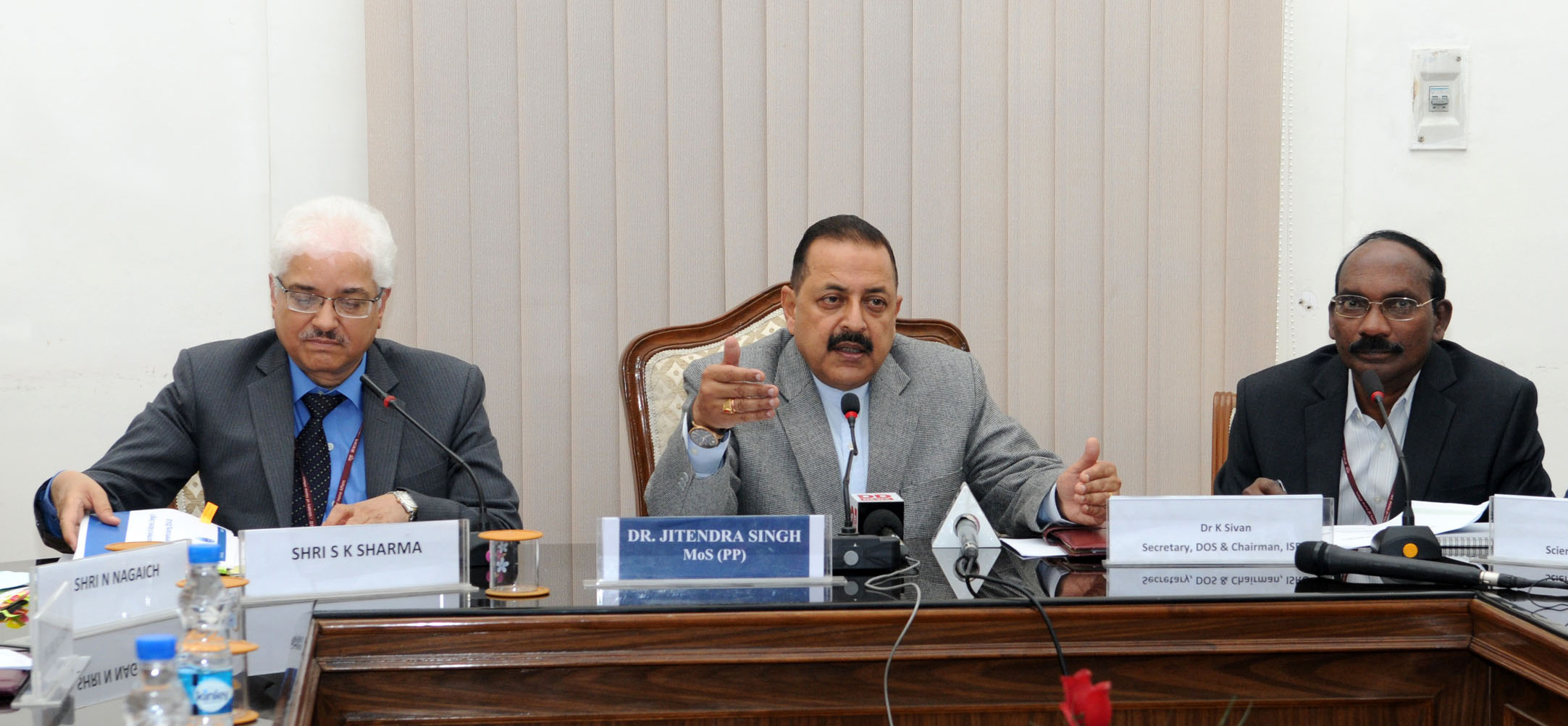
Northeast to play leading role in India’s economic emergence in post-Covid scenario: Dr Jitendra Singh
New Delhi: The North Eastern Region (NER) of India would be playing a leading role in post-Covid scenario thereby taking a lead as ‘new engine’ of ‘new India’ and play a leading role in the country’s economic emergence in the times to come, Union Minister of State (IC) for Development of North Eastern Region (DoNER), MoS PMO, Dr Jitendra Singh said in a video message played during an ASSOCHAM webinar held today.
“When the whole world begins to realise that the resources elsewhere are getting gradually saturated, it is the northeast which would attract the attention of the new entrepreneurs, explorers for its unexplored potential and avenues whether it be in the form of tourism or setting up new entrepreneurships,” said Dr Singh addressing a webinar on ‘Emerging North East – Smart Solutions’ hosted by The Associated Chambers of Commerce and India of India (ASSOCHAM).
The Minister said that India is emerging out of the corona pandemic and has to an extent set an example before the world of how it could meet the challenge of crisis in spite of its huge population of 135 crores quite effectively and producing rather better outcomes than most of the European countries with much smaller population.
“Therefore, time has come for all of us to ponder, plan and workout the scenario in the post-pandemic era and how best to supplement the economic condition and resurgence of India in the post-Covid era,” said Dr Singh.
He urged the trade and industry bodies to come forward and collaborate with the government. “Industry and trade leaders are going to play a very critical role because I feel that in the post-Covid era, India is going to be the torchbearer of the new economic scenario that would emerge on the world platform.”
Dr Singh also said that holiday seekers will soon realise that compared to some of the best known European tourist destinations, the destinations in northeast India are much-much more safe as well as cost effective. “As far as tourism is concerned, the most sought after European tourist destinations got completely afflicted or gripped by corona, it was some of our favourite destinations like Gangtok, Shillong remained corona-free till the end.”
The Minister stated that in last six years or so, there has been direct intervention and prioritisation given by Prime Minister Narendra Modi, ease of travel and tourism will be taken care of.
“We have now huge progress in connectivity, we have a network of double-gauge rail track being laid down, we are going to have first-ever train moving from Tripura to Bangladesh, we have new airports, for example we have an airport in Sikkim which was dedicated to the public by none else then Prime Minister Modi two years back,” said Dr Singh.
He also said that with an airport coming up at Itanagar, it would be a special facilitation for the trekkers, mountaineers and explorers who would like to visit the scenic spots in the Tawang Valley.
Talking about the trade and business aspect, he said India had a business of Rs 5,000-6,000 crore in bamboo sector alone which has huge reserve in north-east, and hailing the Government of India he said, “Prime Minister Modi having taken the recent decision to hike the import duty on the bamboo goods coming from abroad to as much as 25 per cent, this is certainly going to encourage domestic bamboo production. This is a great breakthrough, for example looking at the small item like agarbatti (incense sticks), which is an item used virtually in every Indian household but all of it was being imported from other countries. Now we would be creating conditional milieu which would encourage this production domestically.”
He further said, “We in the DoNER have taken upon ourselves not only to carry the virtues and unexplored potential of north-east to the various parts of the country to familiarise them, but we have also launched a movement to promote bamboo production and trade across the country. We have already made a beginning from the newly created Union Territory of Jammu and Kashmir where the ministry plans to collaborate in the setting up of three clusters namely dedicated to agarbatti, charcoal and baskets respectively.”
Addressing the ASSOCHAM webinar, Mr Tawnluia, deputy chief minister, Government of Mizoram assured the industry of government’s full support and cooperation for smooth functioning of industrial units in the state to kick start their activities and avail various benefits under government schemes.
“Mizoram is one of the strategically important state with international borders with Bangladesh and Myanmar and it is an important port state for southeast Asian imports to India, as well as exports from India,” said Mr Tawnluia.
Noting that Mizoram has seen substantial development in the recent times and the graph has been on rise, the state deputy CM acknowledged that while government has taken various steps, it is aware of the challenges of infrastructure and logistic connectivity that exist.
Talking about the state’s thrust on railway infrastructure development for the greater connectivity he said, “I am sure with the Bhairabi Sairang railway project, the logistic connectivity shall greatly improve.”
He stated that Mizoram government has also taken several initiatives towards attaining its goals and the Mizoram Vision 2030 conceives development as a multi-dimensional process with integrated approach to social, economic and environmental goals thereby achieving high sustained economic growth with shared prosperity.
Highlighting the northeast farmers’ potential to take up palm oil cultivation, Mr Nasim Ali, CEO, Oil Palm Plantation-Godrej Agrovet said, “To realize northeast’s palm oil potential, we must have a long term focus with strong commitment spanning 12-15 years. This support should address challenges across the value chain.”
Mr Ali stated that with right mix of policies, subsidies, precision farming – palm oil cultivation in northeast will be successful and will help India in becoming self-reliant in edible oils.
